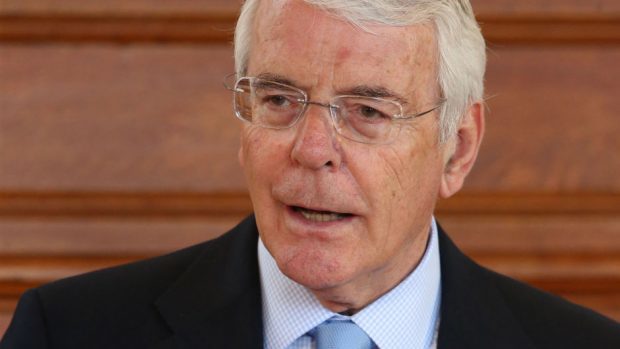Sir John Major has warned a so-called hard Brexit will encourage a second Scottish independence referendum and said it would be “reckless” to ignore the risk.
The former prime minister also insisted independence would “diminish” both Scotland and the UK.
His intervention – in a speech in London last night – came as reports claimed Theresa May is preparing for the Scottish Government to call another poll to coincide with the triggering of Article 50 next month.
Number 10 refused to comment on anonymous sources yesterday, reiterating its assertion there should not be second vote after the 2014 poll.
The prime minister’s spokesman added: “All the evidence around at the moment suggests Scotland does not want another referendum.
“There was a fair, legal and decisive result and both sides agreed they would abide by it.”
But he did not deny that plans were being drawn up in Whitehall.
And, over the weekend, Mrs May urged voters in Scotland to use this summer’s council elections to send a message to Nicola Sturgeon they do not want IndyRef2.
Meanwhile, Scottish Labour’s Westminster spokesman Ian Murray declared the Union was not safe in the prime minister’s hands.
He added: “The Tories have consistently put the Union at risk with their reckless actions in government, including the drive for a hard Brexit and the decision to introduce English Votes for English Laws.”
Mr Major spoke out following a similar move by Tony Blair earlier this month. He said he had deliberately kept silent since June, but added: “I have watched with growing concern as the British people have been led to expect a future that seems to be unreal and over-optimistic.”
On Scotland, he said: “I believe a hard Brexit will encourage a second referendum on independence. This may seem improbable at the moment, but it would be reckless to ignore the risk.
“As we saw last June, emotion and national pride can overcome economic self-interest. If Scotland were to become independent, both she and the UK would be diminished. That cannot be ignored as Brexit evolves.”
He also argued the UK Parliament is not and should never be treated as a “rubber stamp”.
And he warned a weakened EU that might become more protectionist would be damaging to British interests.
